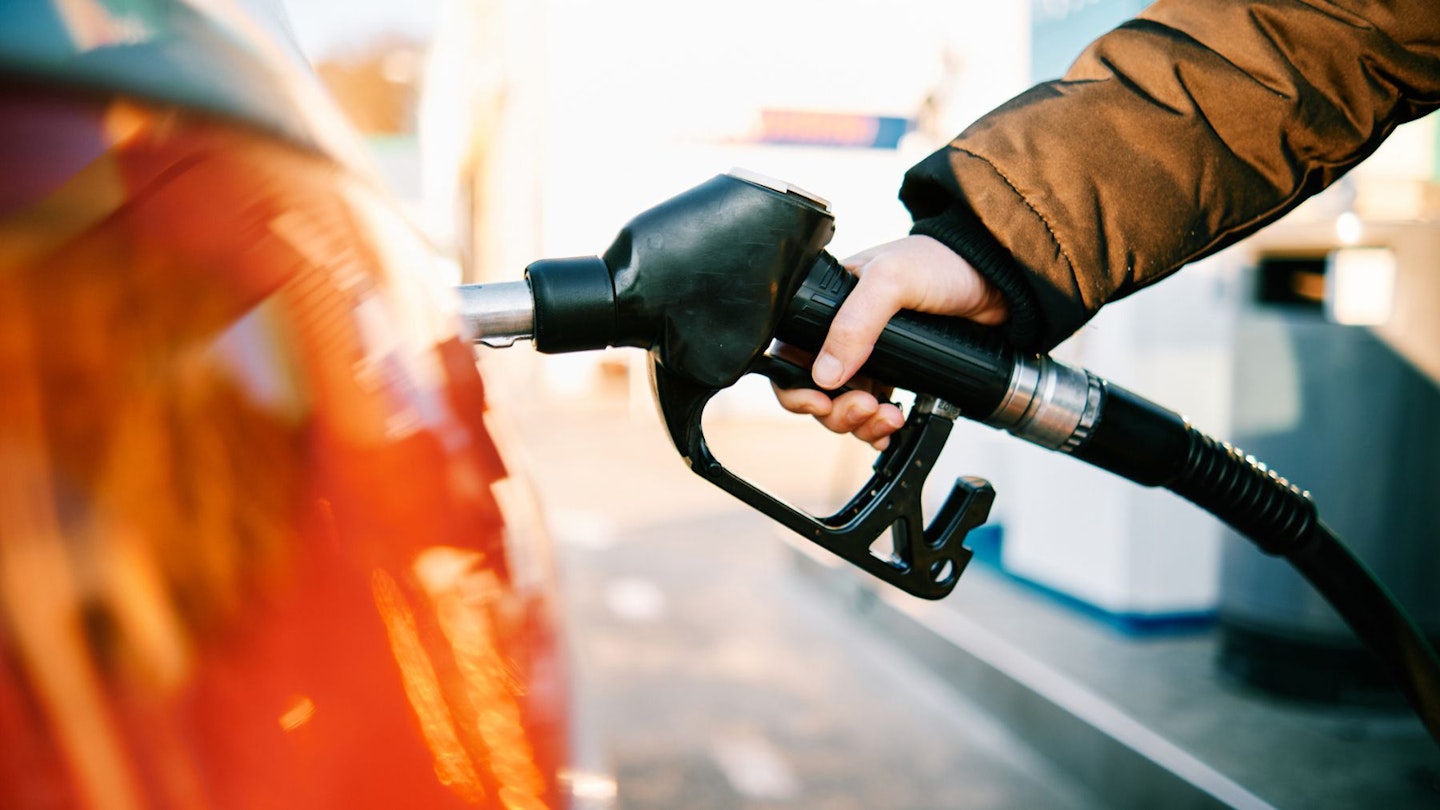Diesel is getting a bad rap at the minute, hence the rise in popularity of not only diesel engine cleaners but diesel injector cleaners. Politicians have labelled it evil, and pressure groups are hell-bent on pushing it out of civilisation. Diesel still has its place on our roads, however. If you do a lot of motorway miles, then a diesel cannot be beaten for mpg. It'll save you a good chunk of money even if the Government tries to tax you off the road, so long as you look after the diesel injectors.
If you're driving a diesel car, you should be looking at using an injector cleaner alongside an engine cleaner to keep your car working as efficiently as possible. Over time, carbon deposits from fuel build up in the fuel injectors, negatively affecting performance and fuel efficiency. A diesel injector cleaner is simply added into the fuel tank alongside normal diesel and works at removing these deposits as you drive around. For petrol-powered vehicles, see our article on the best petrol injector cleaners.
The best diesel injector cleaners at a glance:
Editor's pick: STP Ultra 5 in 1 Diesel Fuel System Cleaner - Buy now from Amazon UK
Best continuous cleaner: Redex Diesel Fuel System Cleaner - Buy now from Amazon UK
Best for high milers: STP Diesel High Mileage Injector Cleaner - Buy now from Amazon UK
We've put together a handy guide on the best diesel injector cleaners to answer your questions so you know which one will suit your car.
The best diesel injector cleaners:
Most comprehensive diesel injector cleaner
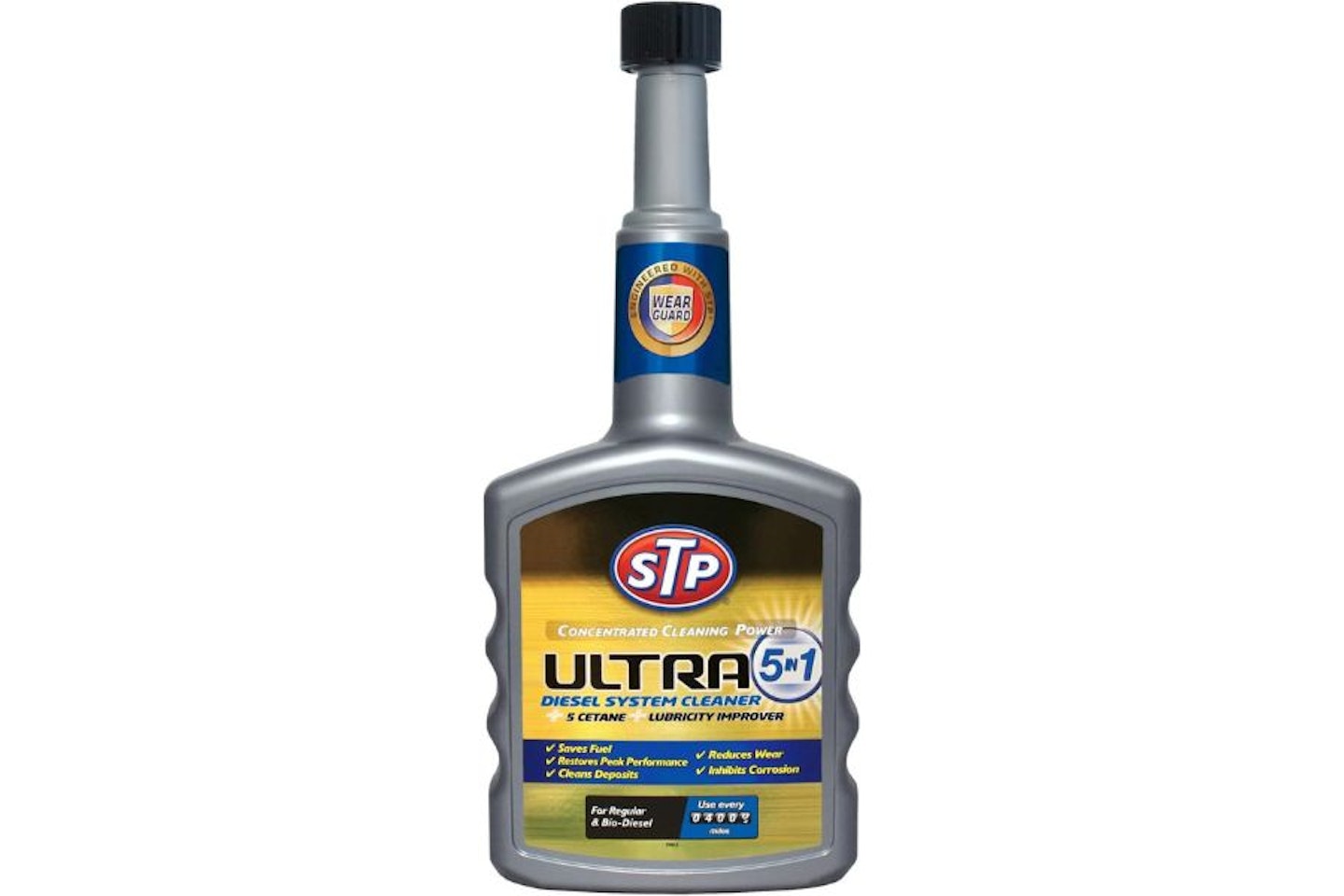 Via STP
Via STPAdd 400ml every 4000 miles. Remember, it's not just your injectors that can be clogged with nasty deposits that speed up wear and strangle power. Your entire fuel system is susceptible to power-sapping deposits and should also be flushed out from time to time. This is where this STP 5-in-1 solution comes in.
As well as reducing friction and increasing power and economy across the entire fueling system, this option also makes us of Wearguard to protect and lubricate your engine better, reducing internal wear and stopping new deposits from building up quickly. This is what really makes the STP 5-in-1 option stand out.
This option is suitable for all diesel engines and is also safe to use with catalytic converters too. The product's use of cerium will help stop soot building up in your engine too.
Pros
- Powerful cleaning
- Long-lasting results
Cons
- More expensive than rivals
Editor's pick
 Via STP
Via STPAdd 200ml every 3000 miles. STP are the masters of fuel additives. If you're wanting a quality product at a reasonable price, then we recommend using this injector cleaner in your car. STP make use of additives that are specially formulated to target the deposits on fuel injectors and dissolve them. STP say that you'll notice the difference within 50 miles of driving.
STP also claim there will be a noticeable improvement with both performance and fuel efficiency, claims that reviews generally support. This product is suitable for all diesel cars and is safe for catalytic converters.
Pros
- Effective on carbon deposits
- Long-lasting results
Cons
- No preventative additives present in this product
Best continuous cleaner
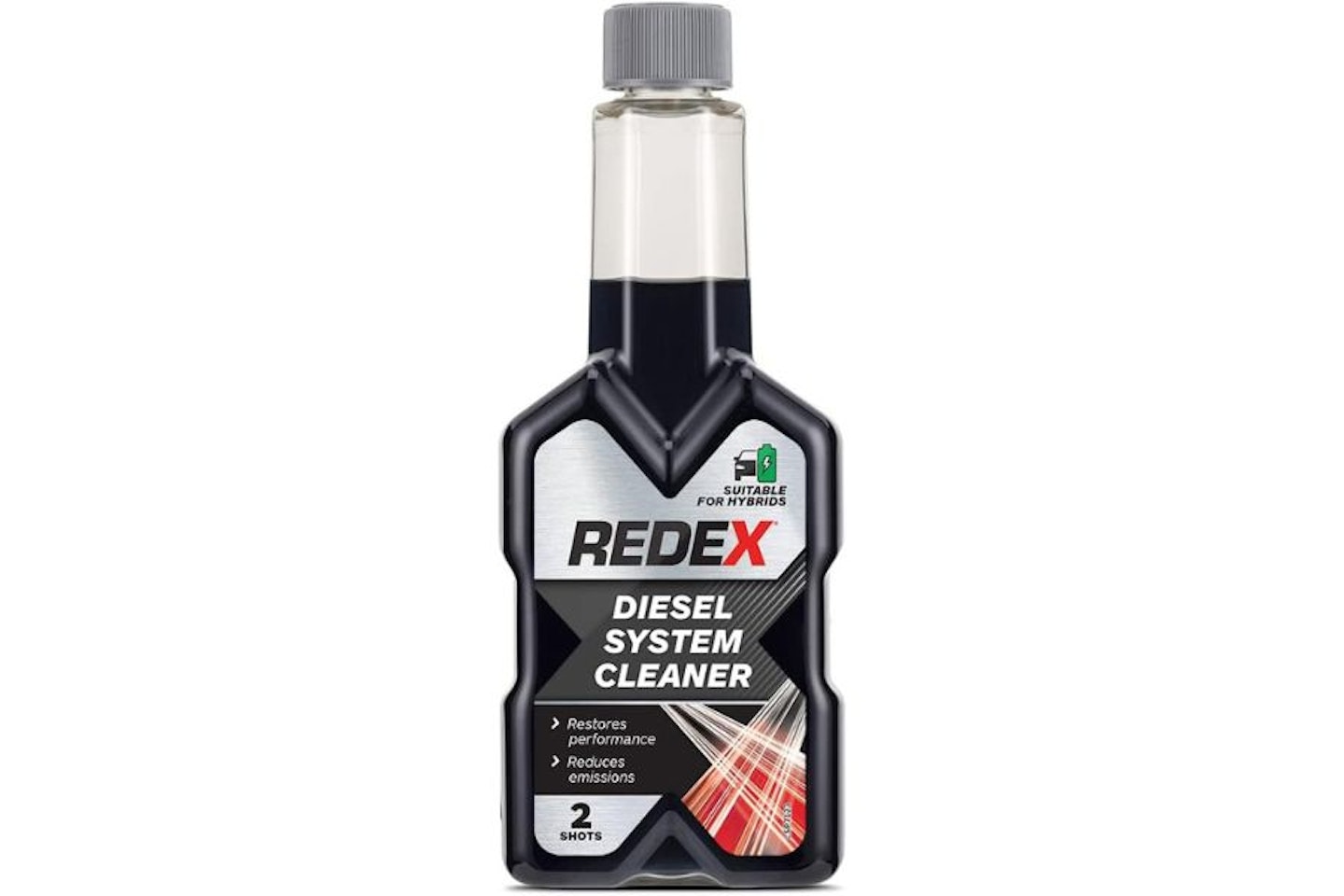 Via Redex
Via RedexAdd 250ml every time you fill up. For a continuous removal of deposits, you can buy a diesel injector cleaner that can be added every time you top up. A product like Redex Diesel Fuel System Cleaner will continuously remove deposits from fuel injectors to help maximise power and efficiency.
However, while it may be much cheaper than other options here, the speed at which you'll go through the bottles will quickly add up, even with each bottle containing two doses.
Pros
- Two shots in one bottle
- Good value (initially)
Cons
- You'll go through loads of bottles if you refill your tank regularly
Best option for high milers
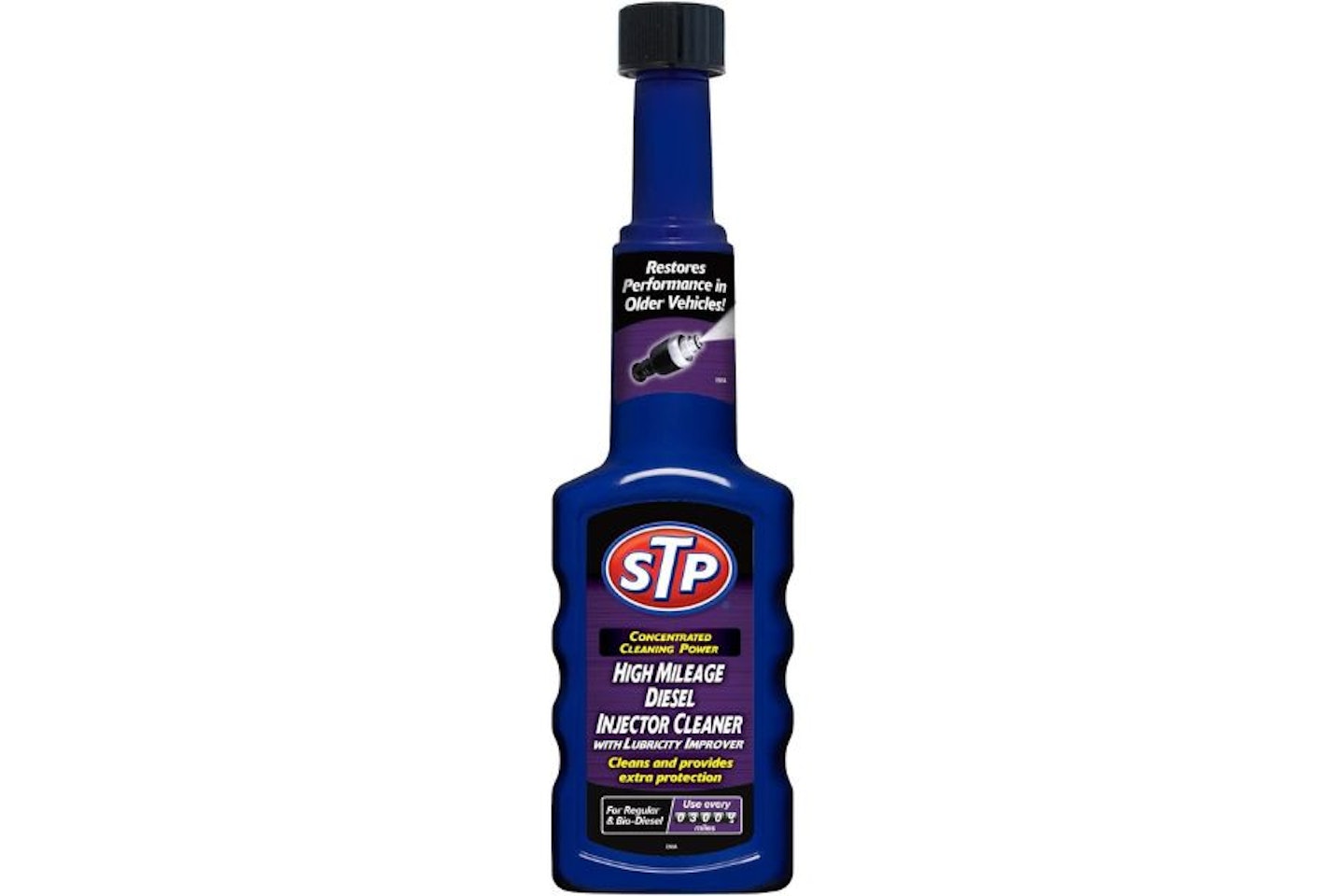 Via STP
Via STPAdd 200ml every 3000 miles. This STP High Mileage Cleaner is much like other STP products featured here. It offers excellent cleaning and will help restore lost power and boost fuel efficiency. What makes this different is that it has been specially formulated for cars with high mileage (75,000 +) to protect the internals of the engine. It comes with Wearhuard technology to keep it sufficiently lubricated.
Pros
- Great for cars with over 75,000 miles on the clock
- Excellent quality
Cons
- Not designed for low-mileage cars
Best injector cleaner for a very deep clean
 Via Wynn's
Via Wynn'sAdd 500ml to 70 litres of diesel when needed. Perhaps you've neglected your diesel engine for too long and need to give it the equivalent of a juice cleanse to clear the system out fully. You'll be needing a multi-function fuel system cleaning additive like this one from Wynns.
Not only does this additive target the entire fuel system and dissolve deposits, but it also is designed to help maintain the cleanliness of the EGR valve and Diesel Particulate Filter (DPF). This additive is suitable for all diesel engines and is safe for use with catalytic converters.
Pros
- All-in-one engine cleaning power
- Helps protect your EGR valves and DPF too
Cons
- Requires repeated use for best results
Most comprehensive diesel engine cleaner
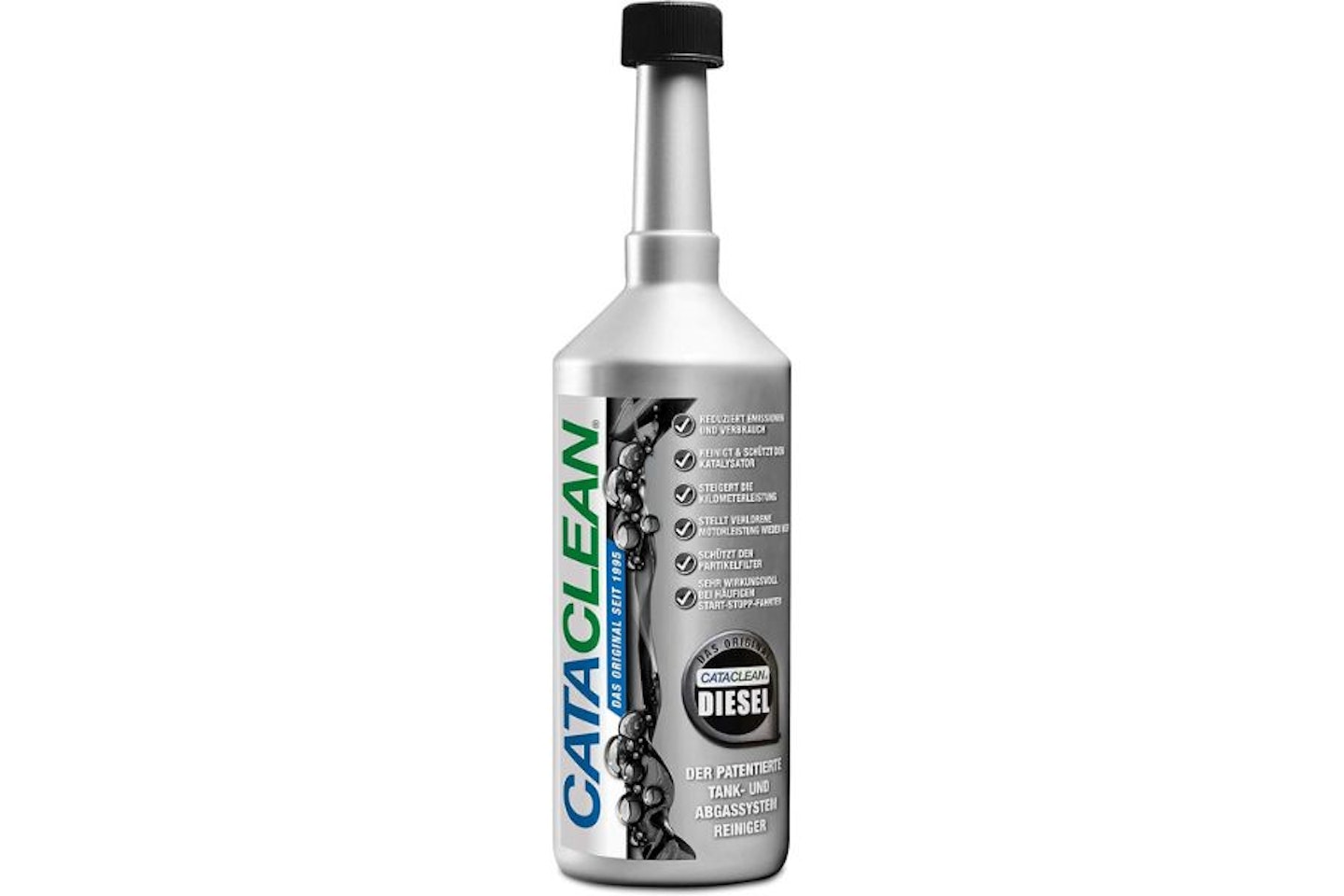 Via Cataclean
Via CatacleanPerhaps the strongest of all the products on this list, Cataclean's 500ml diesel system cleaner helps to maintain several parts of a diesel engine. Injectors are one of them, but this product is also specialised to cleaning out the catalytic converters, DPF filters, EGR valves, and even the exhaust valves.
For the best results, you should ideally insert 500ml per 15 litres of fuel every three months. This requires more precision than the other injector cleaners, but it promises to be the most effective of the lot.
Pros
- Incredibly comprehensive diesel engine cleaner
- Tackles 7 other things aside injectors
Cons
- Usage is quite specific
Best budget fuel injector cleaner
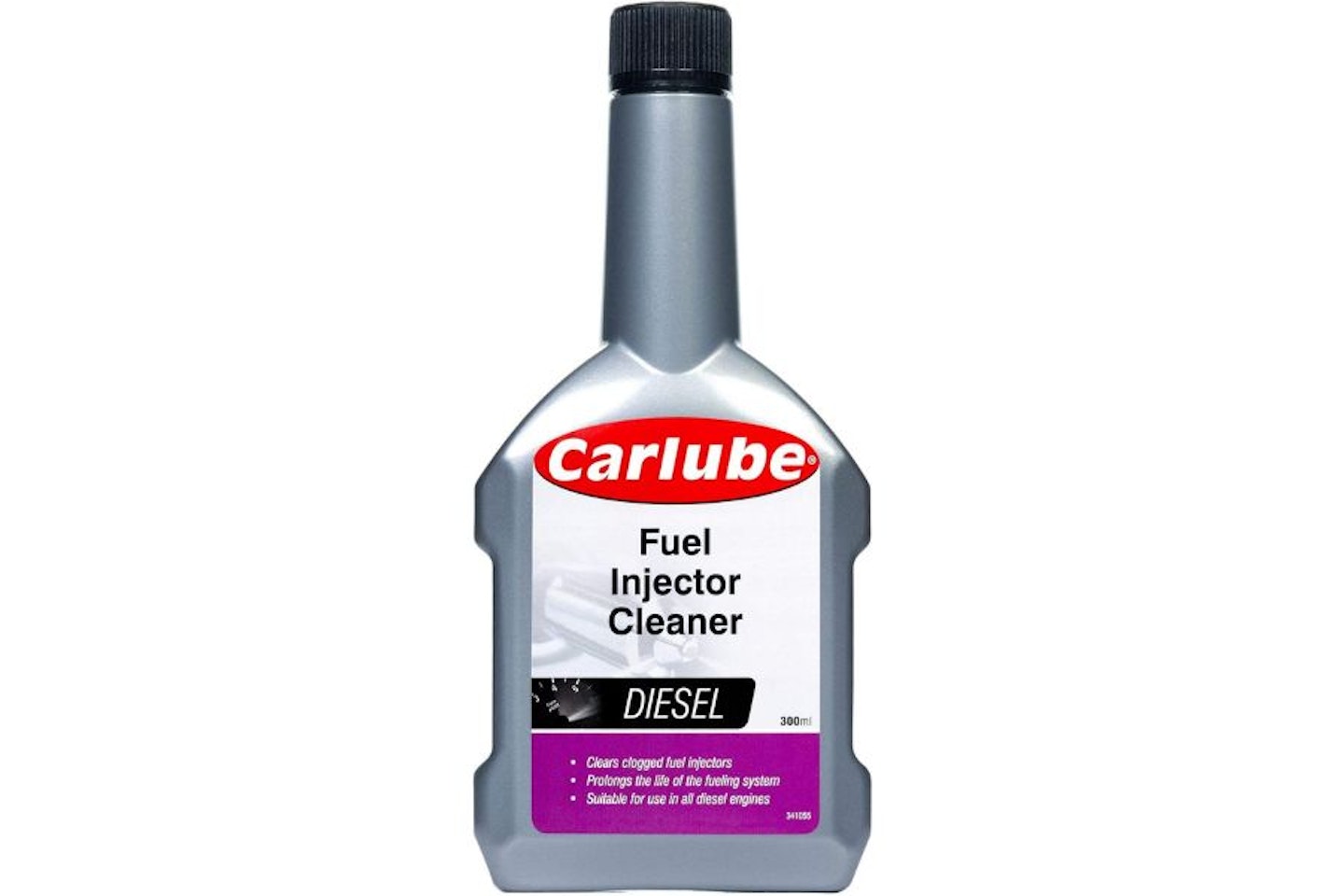 Via Carlube
Via CarlubeOne other option on the cheaper end is Carlube's Diesel Fuel Injector cleaner. Unlike the Redex cleaner, all 300ml is advised to be used every three months rather than every tank of fuel.
It helps to clean up carbon deposits in the injectors, inlet valves and helps to improve fuel economy and exhaust gases.
Pros
- Easy instructions
- Great value
Cons
- Not as strong as some others
What you need to know about diesel injector cleaners
How does diesel injector cleaner work?
Once you add a diesel injector cleaner into your tank with regular diesel, all you need to do is drive around for a bit for the additives to get to work. The cleaner travels with the diesel through the fuelling system, breaking down solid deposits and removing corrosion. The leftover cleaner is then deposited out of the exhaust.
Do injector cleaners really make a difference?
In short, yes. Flushing out your engine will have a positive effect on performance, efficiency and internal protection, even if you don't notice it much in day-to-day running.
Unless your injectors are pretty much clogged, there isn't going to be a dramatic change in power delivery. That being said, cleaner fuel injectors will make your car better and will allow you to maximise performance. You're more likely to notice that acceleration is smoother than an ability to shave seconds off your 0-62 time.
Fuel efficiency, on the other hand, will see a noted increase. While it won't make an Audi A4 TDI suddenly more fuel-efficient than a WV XL1, it can improve efficiency by as much as 10%, a difference you'll soon notice at the pumps.
The bottom line is it's well worth looking at using an additive. It'll pay for itself with increased fuel efficiency, and flushing out your system can prevent an expensive problem down the road.
However, it's also important to remember that diesel injector cleaner is not some miracle substance that will fix all your engine woes. If you still notice you're engine isn't running right, then there may be a bigger (and more expensive) issue at hand.
Are all diesel injector cleaners the same?
You may think that because diesel injector cleaners all target the fuel injector that, it doesn't matter what type you go for. However, due to the different additives present in diesel injector cleaners, it's a clever idea to do your research and kill two birds with one stone if you can.
There are a number of different injector cleaners that are specially formulated for different tasks, from simple injector cleaners to multiple additive options and even cleaners designed explicitly for high-mileage motors.
How do you diagnose a clogged diesel fuel injector?
Carbon build-up in your engine can affect your car in different ways. The most obvious examples are black smoke and difficulties during ignition. Reduced performance and increased fuel usage are also common. If you've identified the issue you're having, look at the diesel injector cleaner that is designed to fix your issue specifically.
What features should I look for with diesel injector cleaner?
Your top concern should be whether it's effective for your engine, but there are other aspects you can consider too.
Think about how big the bottle is and how long the shelf life is. If you buy a larger bottle of diesel injector cleaner, bear in mind whether you'll use it all before it goes off.
Also, look at how long each dose lasts. Some brands recommend adding the product to every tank of diesel you use, while others recommend adding the additive after you've travelled a certain distance (e.g., every 3000 miles). This choice is entirely up to you, although adding additives every time you top up can get rather expensive.
Finally, think about the placement of your fuel filler. It's probably a good idea to invest in a funnel of some description so you don't spill injector cleaner all over your shoes.
Do all diesel cars have fuel injectors?
Ever since the first diesel production car was introduced (the Citroen Rosalie) in 1933, all diesel cars have used a form of fuel injection. Earlier models used a mechanical injector before switching to a more sophisticated fuel injector. The reason for this is that the density of diesel necessitates fuel injection in order to properly atomise the diesel for combustion.
In short, all diesel cars have an injector of some description, and as such, all diesel vehicles will need some form of maintenance to keep the injectors working effectively.
Ryan Gilmore is the Deputy Autos and Tools Editor for Parkers and CAR, specialising in car cleaning and hand tools. With an MA in Automotive Journalism, when he's not testing buckets he can be found looking at old Porsches.
